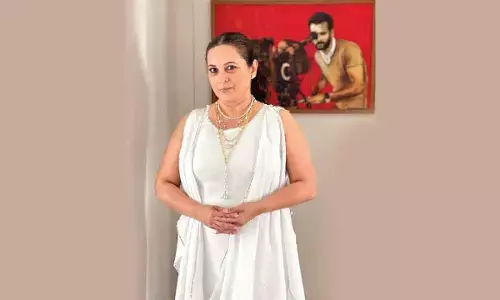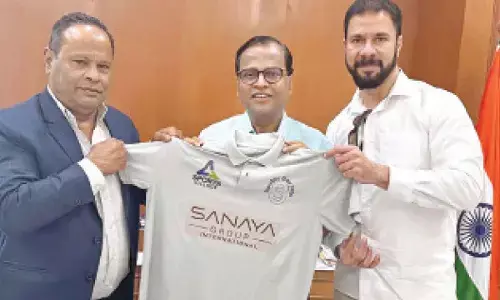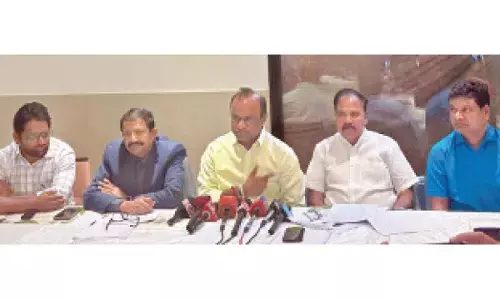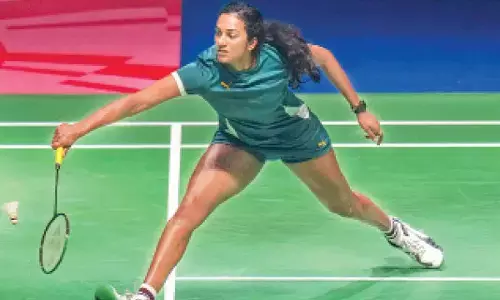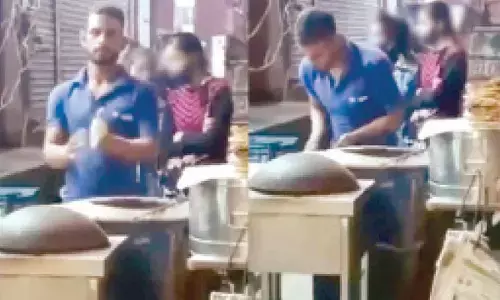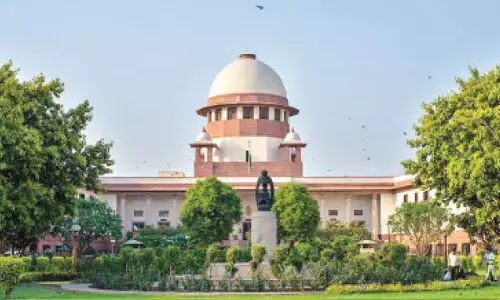Ongole: With no qualified labs, drinking water quality in doubt
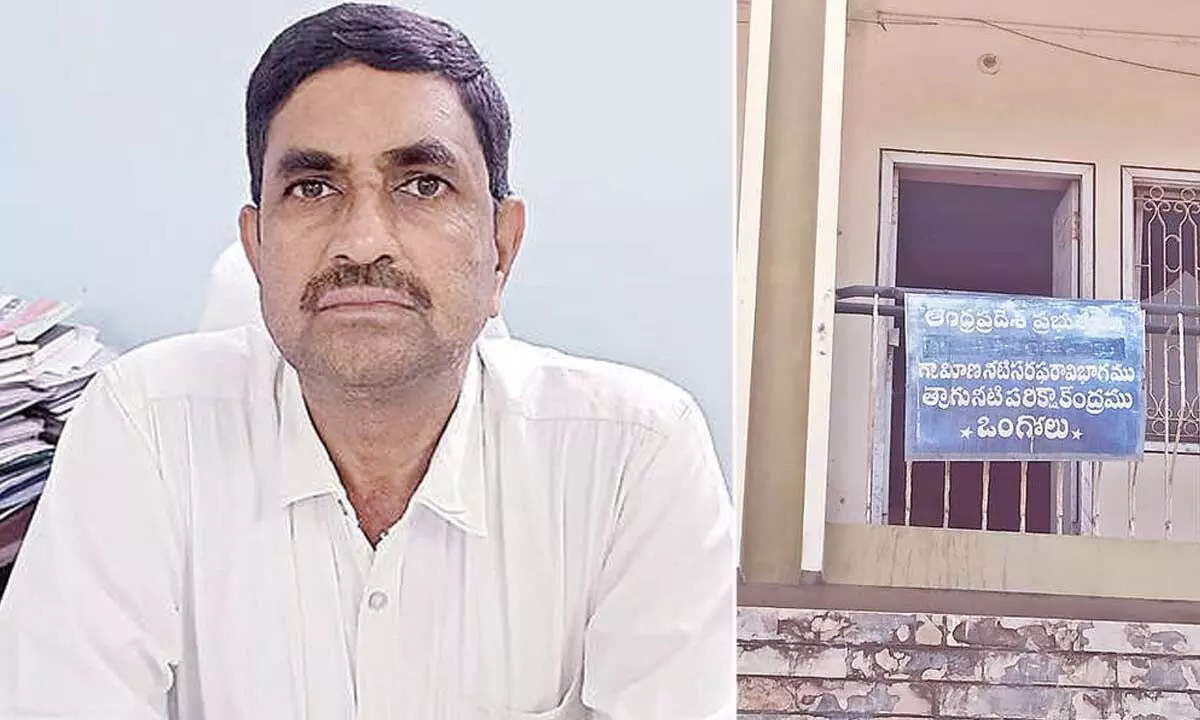
Sk Mardan Ali, superintending engineer, RWS&S Prakasam district and Drinking Water testing lab of RWS&S dept at Ongole
- The Union government’s campaign ‘Swachh Jal se Suraksha’ ensuring the quality of potable water supplied to every household is about to conclude by this month-end.
Ongole: The Union government's campaign 'Swachh Jal se Suraksha' ensuring the quality of potable water supplied to every household is about to conclude by this month-end. But still, there is no guarantee that the water being provided under various schemes is safe and consumable in various districts in Andhra Pradesh, as there is just one district-level lab certified by the National Accreditation Board for Testing and Calibration Laboratories (NABL).
The Jal Jeevan Mission (JJM) was launched in the country to provide safe and adequate drinking water through tap connections to every household in rural India. In the 44 months of its implementation, the state and Central governments have been successful in bringing the percentage of households with tap connections from 16.66 to 58.82. In Andhra Pradesh, the percentage has increased from 32.18 to 69.33, and the work is going on in the villages. The YSR Kadapa district is leading in the state with 97.83 per cent of households having tap water supply, while the Palnadu district is last in the list with just 30.44 per cent.
To test the water quality, there are labs under the rural water supply and sanitation (RWS&S) department at the district and Assembly constituency levels. At the ground level, the department trained the engineering assistants in ward and village secretariats to test the quality of water with field test kits.
The national water, sanitation and hygiene experts for Jal Jeevan Mission visited Prakasam district to inspect the progress of works in December 2022 and expressed satisfaction over the works but were unhappy with the tests done at the labs and at the ground level with the kits. They pointed out that the test values were just below the permissible limit for various parameters in the records and said that unless the labs receive NABL accreditation they cannot trust them.
The department of drinking water and sanitation, Government of India, directed the state governments in early 2020 to establish at least one water testing laboratory accredited by the NABL in each district. But still, there are only four NABL-accredited labs in the state, among them is only one district-level lab from the RWS&S department in Guntur.
Sk Mardan Ali, superintending engineer of the RWS&S in Prakasam district, said that the chief engineer of the department has already appointed an agency as a consultant to facilitate the NABL accreditation process for 69 divisional and sub-divisional labs in the state in January 2023. He said that the consultants are working on the process and the labs are being equipped with the equipment and machinery, and are ready for inspection. He assured that the labs will be ready with the NABL accreditation in a few days.








